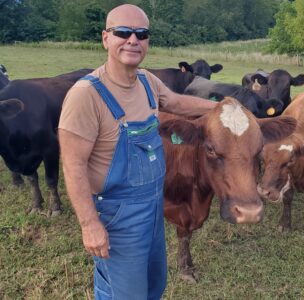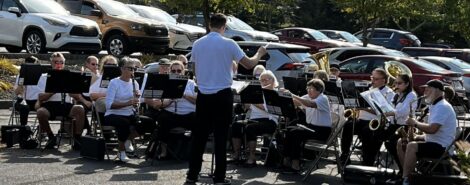Footsteps to Follow: Where’s the anger?

I noticed something missing when reading the three parables in chapter 15 of Luke’s gospel. But let’s back up and define “parable,” a term we Bible nerds toss around like rice at a wedding. The internet has a plethora of definitions, but I found this one simple and helpful: “A parable, generally speaking, is a short story employed as an object lesson…Such stories are told not only for the sake of art or entertainment but always with intent to persuade” (https://www.logos.com/grow/nook-parables-of-jesus/).
A parable is not an allegory, where every fictitious detail represents another actual detail. When I was teaching high school students in private Christian schools, I reveled in sharing this very old and very misguided parable interpretation, by none other than the great St. Augustine, who died in 430 AD.
“In Augustine’s rendering, there is a man (Adam) traveling a road. Having been stripped (of immortality) and beaten (or persuaded to sin) by robbers (the devil), he is ignored by a priest (the Law) and a Levite (the Prophets) before being attended to by a Samaritan (Jesus Christ). The Samaritan takes him to the inn (or the Church) where two denarii (the promises of this life and the life to come) are paid to the innkeeper (the Apostle Paul), to take care of the man” (https://www.9marks.org/article/allegorical-interpretation-finding-the-line-before-you-cross-it/). It is hard to believe Jesus had all those details in mind when answering the question, “Who is my neighbor?” (Especially since in Augustine’s explanation, Jesus doesn’t answer the question at all.)
Sorry for distracting you! Let’s return to Luke 15, where I noticed that something was missing in each parable. The first story tells about a lost sheep, the second a lost coin, and the third a lost son. In each instance, the person who loses something has no anger at the thing lost.
The shepherd rejoices as he carries the found sheep on his shoulders. In contrast, I would probably beat its fluffy hide all the way to the sheep fold. The woman throws a party after finding her coin. You wouldn’t want to see my annoyance when I can’t locate the crochet hook I just used one minute ago. The father doesn’t berate his wasteful, sinful son. Instead, he welcomes him with a hug and a kiss. Me? I feel frustration and disappointment at those who have wandered from the faith.
To be honest, I have always identified more with the older brother of the wayward son. (He’s the guy who refused to come to the party Dad hosted for his poor excuse for a brother.) I tend to think I have consistently obeyed my Father and caused no trouble; therefore, I deserve the title “Favorite Child.” (Why is God rewarding everybody else? Doesn’t he remember that I am his favorite? I even had a small coaster on my desk at school that read, “Jesus loves you, but I’m his favorite.”) But I finally realized I shouldn’t identify with either brother. I should imitate my Father who loves all his children and enfolds us all in his arms if we come home or if we have never left.
And what about my anger and desire to punish Fluffy, the Little Lost Lamb? God frequently reminds me of this warning issued in the Epistle of James, “My dear brothers and sisters, take note of this: Everyone should be quick to listen, slow to speak and slow to become angry, because human anger does not produce the righteousness that God desires” (James 1:19-20 NIV).
I invite you to pray this prayer with me: Thank you, Jesus our teacher, for sharing these parables with your disciples thousands of years ago and now with us through the written Word. Forgive and remove our tendency to react with anger, and clothe us in your mercy and grace. Amen.
Roberta Tucker Brosius, First Baptist Church, Milton






